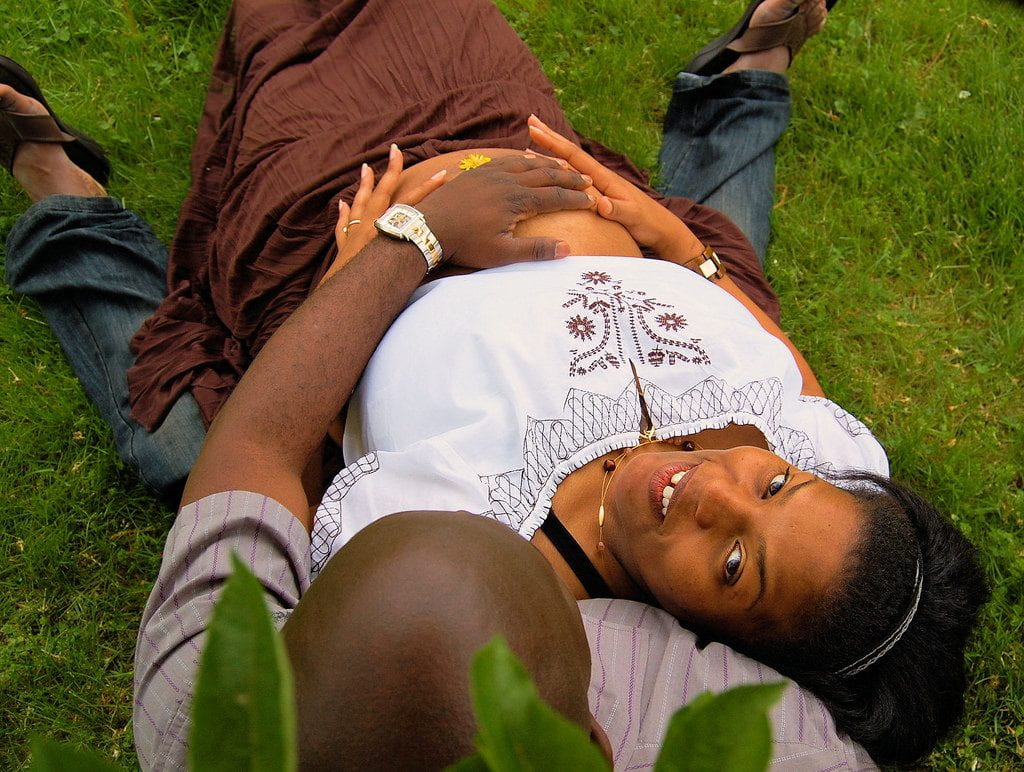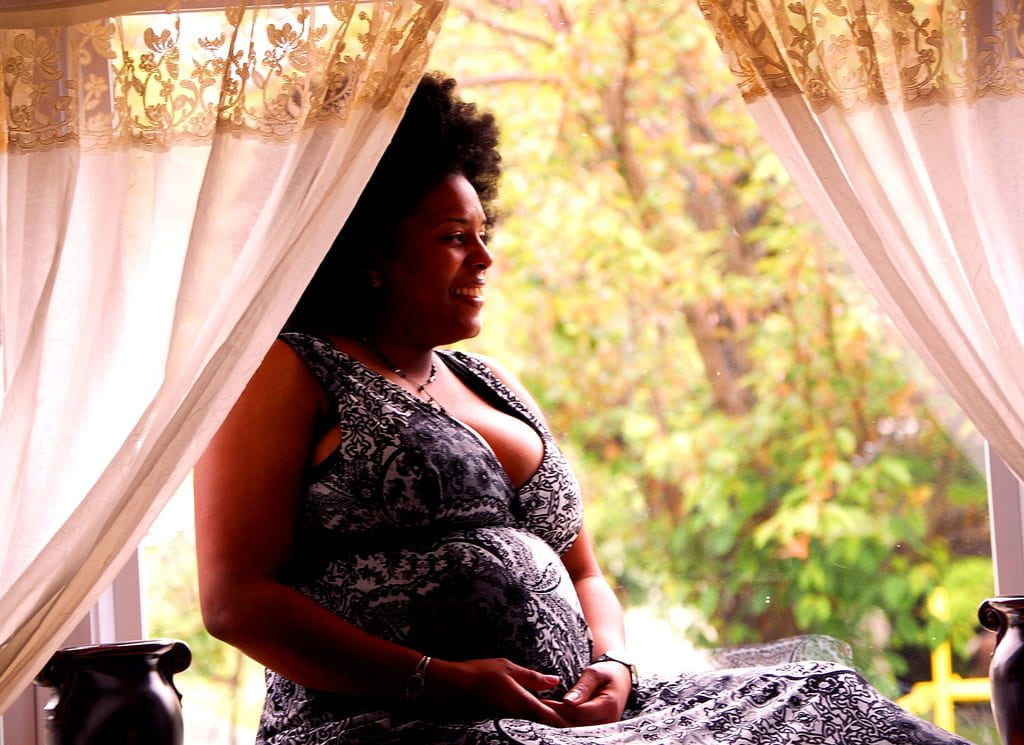by MARTINIQUE PERKINS WATERS, Ph.D.

I did something very interesting in my mid-twenties. I asked a few of my family members if they would be willing to be a surrogate if I could not have children. Now, let me preface this by saying I never had any kind of health issues and most women in my family conceived with no problem. My OB/GYN never mentioned irregularities, fibroids, or cysts. My graduate school research had nothing to do with women’s health so I was not inundated with facts and figures. Yet, here I was already concerned and worried (with no discussion of even a long-term future with my partner at the time might I add). My wonderful family, including my mother, tentatively agreed but I am sure were thinking “she has to be joking”. I had never been more serious; I wanted to have options. I did not know what would happen when my womanhood was called out on stage. As women, that is how so many of us define ourselves, right? This is what famed Developmental Psychologist Erik Erikson called generativity: deciding how we will contribute to future generations. In his theory, however, he felt that people usually did not start worrying about this legacy until middle age (or at the very least until a partner was on board), but here I was already thinking about my grandchildren.
About 5 years later, while I was teaching Public Health and Medical Issues in African American Communities, I discovered the documentary series, “Unnatural Causes.” Unnatural Causes delves into the relationship between social conditions and population health. When it came time to discuss health disparities as related to women’s issues, the episode “When the Bough Breaks” was perfect. One statement in the video astounded me: Black women with advanced degrees have worse birth outcomes than White women without a high school diploma. I nearly cried in front of my class. It not only took me back to my concerns in my 20s, but I had just found out I was pregnant with my first child. Would I, a Black woman with a PhD in her early 30s, not be able to carry full-term? Infertility issues, low birthweight babies, and high-risk pregnancies can absolutely influence any woman and family. However, research has uncovered unique circumstances that impact the maternal health of Black women.
Physical Factors
The 2006-2010 National Survey on Family Growth interviewed over 20,000 men and women about family life, pregnancy, infertility, general health, and reproductive health. Chandra and colleagues found non-Hispanic Black women were 1.8 times more likely to report fertility issues compared to non-Hispanic White women. This finding was true among married women as well. It is possible that uterine fibroids, benign tumors in the uterus, affect fertility. Reproductive Science is a relatively young field (compared to Obstetrics and Gynecology which date back to the 19th century), therefore the relationship between uterine fibroids and infertility is far from definitive. However, race/ethnicity is a well-established risk factor for uterine fibroids with Black women developing uterine fibroids at an earlier age than White women. A recent analysis of couples in a reproductive medicine clinical trial found that Black women with uterine fibroids were more likely to miscarry before 12 weeks compared to White women with uterine fibroids. Researchers are trying to identify genetic causes but that will not help the thousands of Black women trying to conceive now.
Psycho-social Factors
Were you ever told babies do not grow in a hostile womb? I heard that at some point in life. During my first trimester, I learned this new information about health disparities in pregnancy outcomes and I was going through a career transition. I was stressed out. Stressors cause the body to release cortisol, which is a necessary hormone when you need to react during intense situations. However, long term exposure to cortisol weakens your immune system and puts you at risk for disease. There is a significant amount of data to support that high levels of cortisol (from continual exposure to stressors) throughout pregnancy can impact the development of your baby. At the same time stress, as a psychological and emotional reaction, is at the center of two of the most common psychological disorders: anxiety and mood.
Anxiety disorders often include fear, tension, nervousness, and dizziness whereas mood disorders often include a sense of hopelessness, fatigue, depression, and an inability to concentrate. Although pregnancy does not increase the likelihood that you will develop either disorder, whether stressed or not, undiagnosed psychological disorders prior to pregnancy can advance further because the symptoms go undetected due to similarities with the normal experience of pregnancy. Dealing with the stigma of mental health issues in the Black community will have to be for another time, different blog! What should a Black woman dealing with certain psychological and emotional symptoms, particularly as stressors, do? Best solutions to deal with stress: walk, yoga, cut out unnecessary activities, watch TV, journal, eat well, and countless other suggestions from books and websites about de-stressing your life. I will admit that I failed miserably in completely de-stressing but I did manage to incorporate a few suggestions over my pregnancy.

How can Black women deal with cultural, historical, and intergenerational stress…the kind of cumulative stress that comes from 400 years of slavery, racism, and discrimination? The pervasive stress that has entrenched itself in the Black psyche? Yes, it is absolutely in there, but it has not just remained in our minds as simple negative thoughts. If that were the case, we could have some sessions of cognitive therapy, learn to counteract those aversive thoughts, and stop perceiving the world as a threat. When one examines racial differences in health outcomes with all things being equal across the racial groups, for example money, education, health care access, and family life, health disparities are still present. Scholars have offered the historical trauma of Blacks throughout the course of US history as an explanation. Could racism not be another explanation for infertility? According to Prather and colleagues, it is the perfect explanation for the social conditions endured by Black women that ultimately influence sexual and reproductive health outcomes.
This is just the tip of the iceberg. There is additional research on the impact of lack of quality healthcare for Black women experiencing fertility issues. Differences in healthcare options affect the recommended treatment and patient understanding of alternatives. There are also observed racial differences in In Vitro Fertilization usage, with money most often the biggest deterrent. Low-income families are very likely unaware that there are grants available to assist with infertility treatment. These are macro-level factors that require changes in resource distribution, medical training, and public policy. And I ask again, how does it help the Black woman trying to conceive now?
As it turns out, I worried for no reason as I thankfully have two healthy and beautiful little girls. I want to ensure that my outcome continues to be the norm rather than the exception going forward. In my opinion, increased awareness of this problem in the Black community will cause a push for more research on racial disparities in fertility issues. Only then will we begin to see changes that will eventually trickle down to support for another young girl in her 20s wondering “can I conceive?”
Dr. Martinique Perkins Waters is an Assistant Professor in the Department of Behavior Sciences at the University of West Alabama. She obtained a PhD in Lifespan Developmental Psychology from UAB in 2010 and since then has taught a variety of courses for Psychology, African American Studies, and Public Health. For over 10 years, Dr. Waters’ research has broadly related to gerontology with specific interest in the social role of caregiving and how that impacts physical, mental, and emotional health.
